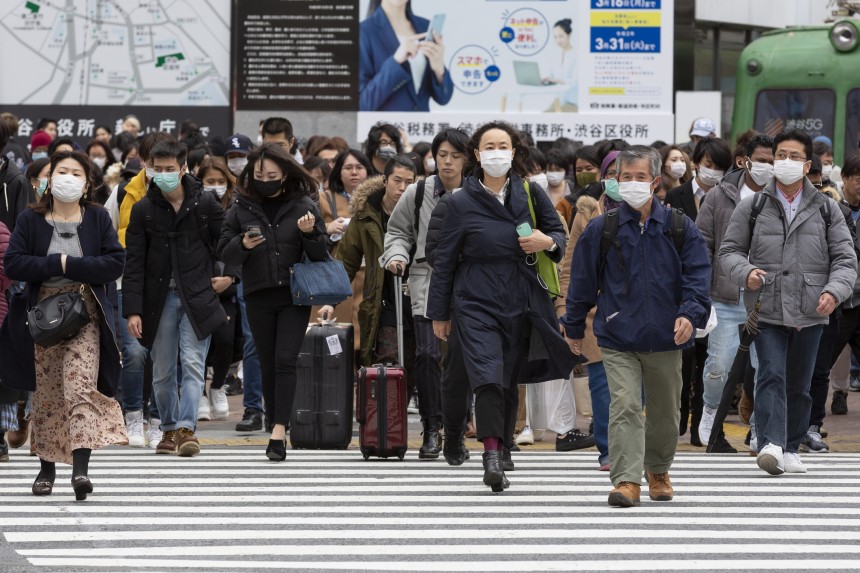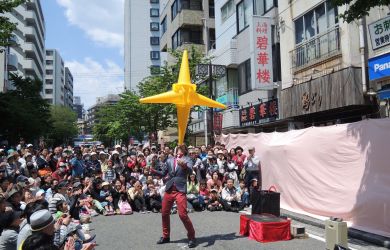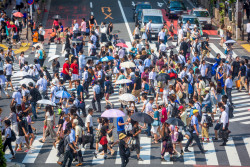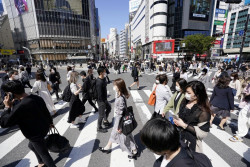
March 31, 2020
Will Tokyo Go Into Lockdown?
Updated news on the capital's coronavirus outbreak
By Metropolis
Following a recent spike in coronavirus cases within the capital, residents have expressed growing concerns over a potential lockdown in Tokyo.
At a press conference last week, Tokyo Governor Yuriko Koike said that a lockdown may become “the only option left” should other measures fail to prevent a substantial outbreak. The same week, the Tokyo Metropolitan Government reported record-breaking numbers of infections and Koike called on residents to stay indoors during the weekend, prompting major businesses to close.
As of Monday evening, there were 443 confirmed cases of COVID-19 in Tokyo.
Koike urges Abe to decide on emergency declaration https://t.co/s5liwGT8D5
— NHK WORLD News (@NHKWORLD_News) March 31, 2020
How likely is a lockdown?
Ministers and health experts have responded to the growing outbreak by expressing the need to enforce a state of emergency in Japan. Satoshi Kamayachi, an executive member of the Japan Medical Association and member of the government expert panel on the coronavirus stated, “I personally feel it’s time [Japan] makes the declaration, and devises measures based on that,” at a news conference on Monday.
However, the Japanese government still deems a state of emergency unnecessary, denying any rumors of a lockdown in any city. On Monday, Chief Cabinet Secretary Yoshihide Suga expelled rumors of a possible Tokyo lockdown beginning April 2. According to Suga, Japan hasn’t reached the point of state emergency as the capital has so far had a small number of cases relative to its population.
What would a Tokyo lockdown look like?
Based on the coronavirus special measures law passed earlier this month, prefectural governors have the authority to shut all public facilities, as well as force closures of private institutions to encourage residents to stay home during a “state of emergency.”
Compared to countries like France and Italy, who have already enforced strict confinement measures, Japan’s legal authority is limited. A Tokyo lockdown would hinge on a strong request for residents to stay at home with hope that they will comply. The emergency law isn’t legally binding, meaning that enforcement powers are also relatively restricted.
As in most cities on lockdown, ministers and government officials have ensured that in the case of a state of emergency, supermarkets, public transportation and banks will still be running.
Weighing the outcomes
On March 27, Prime Minister Shinzo Abe warned that Japan’s economy would be hard hit if Tokyo is locked down due to the coronavirus. Businesses, large and small, have been feeling the financial pressure as the city’s normal functioning continues to be compromised. Like last weekend, major department stores, including Lumine in Shinjuku, will be closed across Tokyo from April 5-6, with possible further closures still undecided.
When questioned at a conference, Abe explained it would be difficult to cover the financial losses in the entertainment industry if they are forced to reduce or stop business. However, the government has already announced that smaller businesses who are struggling may be entitled to some financial assistance.
Private economists now estimate that Japan must now brace itself for the possibility of economic losses reaching $6 billion thanks to the postponement of the Olympic Games.
While some universities are aiming to start classes and other educational activities in April, these dates might change. Some universities, like Waseda University, have already moved many of their lectures online.
Staying prepared
Alongside the cancellation of the Olympics, now rescheduled to start July 23, 2021, many more preventative precautions have been enforced. The measures come as a bid to protect Japan from resembling other countries currently enduring lockdown.
With news that the number of coronavirus cases in Tokyo has now overtaken all other prefectures across the country, governors of Saitama, Chiba and Kanagawa have strongly requested that residents avoid traveling to Tokyo, even on weekdays.
On a local level, restaurants and independent food businesses have been preparing by offering takeout and increased delivery services. Many restaurants, cafes and venues have reduced their number of seating areas to prevent close contact with others and some places have even chosen to temporarily close.
What can we do?
- Stay at home as much as possible.
- Practice social distancing if you do have to go out.
- If your job permits you to work at home, consider working remotely.
- Avoid panic buying. Be mindful of how much you really need and remember others are in the same uncertain situation as you.
- Be careful about what places you visit. The Tokyo Governor strongly advises to stay away from live houses, bars, clubs, karaoke and other places where people congregate in closed spaces.
- Continue to practice good hygiene, especially handwashing.
- Remember that taking care of your mental health is important too when dealing with stress and staying at home. If you’re an international in Tokyo, you can reach out to TELL for free counseling and support.
Further useful links:







